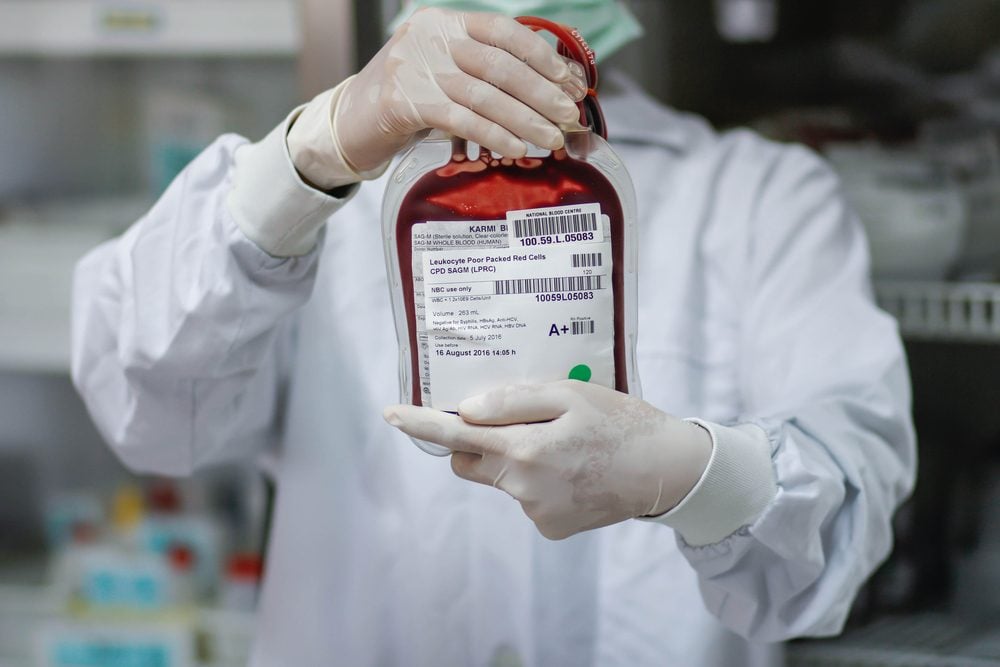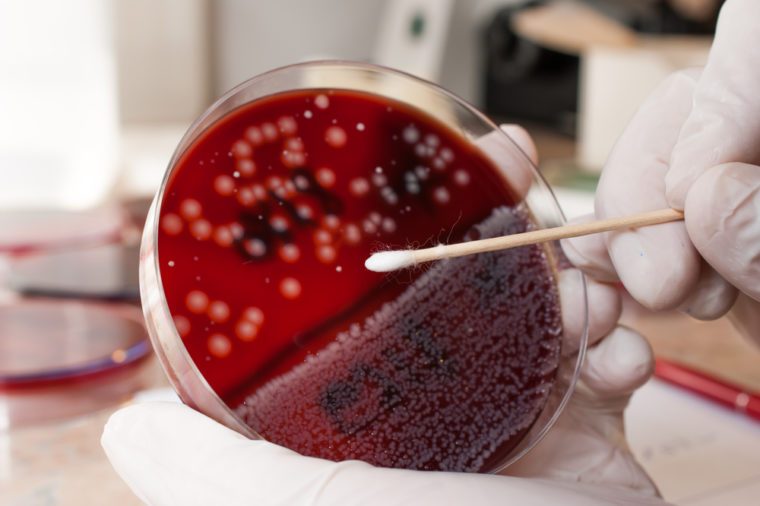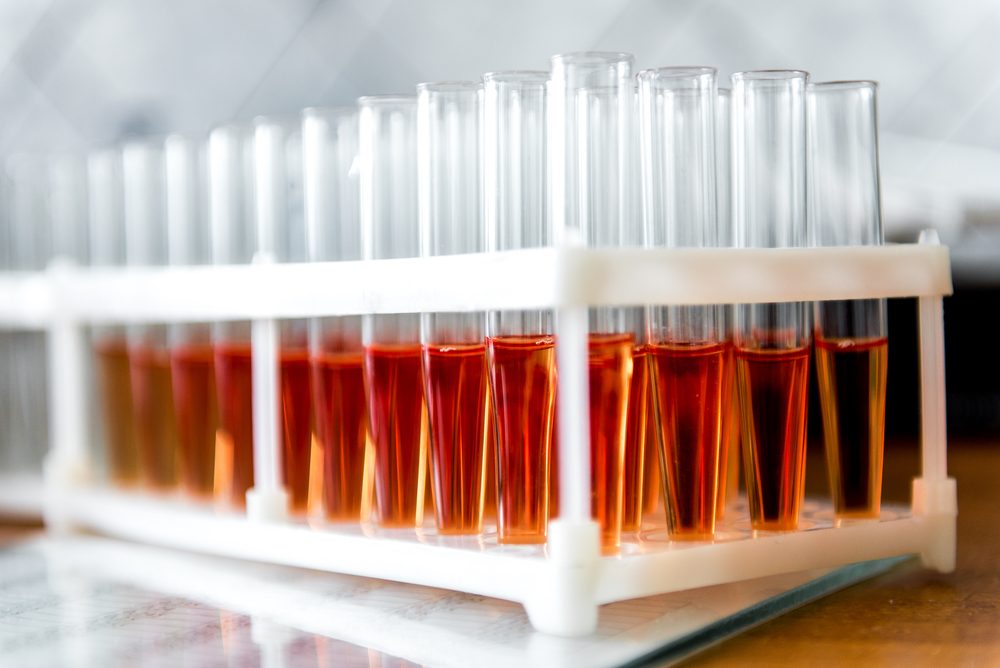- লিঙ্ক পান
- X
- ইমেল
- অন্যান্য অ্যাপ
EVERYDAY WELLNESS
9 Secrets Your Blood Type Reveals About You
You thought knowing your blood type was something people do for fun. It may actually be a window into your health. From heart disease and strokes to certain types of cancer, here’s why your blood type matters.
Your blood type matters
Unless you’ve recently given blood, you may not think much about your blood type. The presence or absence of certain molecules called A or B antigens, as well as a protein called the Rh factor, determine which of the eight common blood types you have coursing through your veins. (Groups: A+, A-, B+, B-, AB+, AB-, O+ or O-.) However, these antigens make a difference beyond just your blood, influencing other body systems like your blood vessels, nerve cells, and blood platelets—which is why your blood type may impact your risk of certain diseases. Here’s why you should know what blood type you have.
Type A, B, AB: Heart disease
 megaflopp/Shutterstock
megaflopp/Shutterstock
Non-O blood types have 25 to 30 percent higher levels of blood clotting proteins known as von Willebrand factor and factor VIII. In part, because of that difference, these folks also have a 15 percent greater risk of dying from heart disease, reports 2015 research from BMC Medicine. Learn about the 9 things you need to know about heart attacks.
Type O: Lower risk of blood clots
 Markov.Sergei/Shutterstock
Markov.Sergei/Shutterstock
Considering that type Os have lower quantities of the proteins that help blood coagulate, they’re also less likely to suffer from blood clots. (The downside is that blood clotting helps prevent excessive bleeding.) That said, there are many things that cause blood clots. “It shouldn’t be assumed that being an O blood type means an individual is ‘protected’ or an A blood type is at higher risk,” says American Society of Hematology Councillor Terry B. Gernsheimer, MD. Here are the blood clot symptoms you should definitely not ignore.
Type O: Fertility problems
 Joana Lopes/Shutterstock
Joana Lopes/Shutterstock
O may be the most common blood type, but it can interfere with pregnancy. As research from the Albert Einstein College of Medicine notes, O’s were twice as likely to have levels of follicle stimulating hormone (FSH)—levels that were high enough to indicate low ovarian reserve.
Non-O type: An increased risk of gastric cancer
Another interesting finding from the BMC Medicine study: Non-O blood types (A, B, or AB) also had an increased risk of gastric cancers, possibly due to an inflammatory response to H. pyloribacteria, the researchers write. (The bacteria is a cause of gastric ulcers.) Here’s how to know if your pain is from an ulcer.
Non-O type: Deep vein thrombosis
 Winzy Lee/Shutterstock
Winzy Lee/Shutterstock
Because of differences in clotting, A/B blood types are 31 percent more likely to suffer from venous thromboembolism—a clot that forms in the deep veins of the leg, groin, or arm—compared to the O type, according to research from the University of Minnesota. Learn how to prevent deep vein thrombosis while on an airplane.
Type AB: Memory loss
 Atthapon Raksthaput/Shutterstock
Atthapon Raksthaput/Shutterstock
Though AB is the least common blood type, research suggests that people with AB are 82 percent more likely to develop cognitive issues in the future. It may be because this blood type comes along with higher levels of factor VIII, the study authors say.
Type A or B: Diabetes
People with A or B blood type have up to 21 percent greater risk of developing type 2 diabetes, per Diabetologia. (B positive had the highest odds.) While researchers note that it’s not exactly known why, one thought is that it may be that blood type influences the GI microbiome, which can affect glucose metabolism and inflammation.
It can’t tell you about your perfect diet
You may have heard people talk about a trendy diet: that eating and avoiding certain foods based on your blood type can boost your health and lower your risk of disease. However, a 2013 review in the American Journal of Clinical Nutrition concluded that there’s no evidence that proves these types of diets actually work. Another study found that although following the diet may work, it has nothing to do with someone’s specific blood type. Find out more about blood type diets.
It probably won’t tell you about your personality
 Cookie Studio/Shutterstock
Cookie Studio/Shutterstock
There’s a theory that your blood type can explain why you act the way you do. While that largely hasn’t been proven, one Japanese study found that some traits differed between blood groups. People with type A, for instance, scored higher on persistence compared to type B or O. Even the researchers note that there’s not enough data to prove the connection, however. Until we know more, looks like your blood type can’t be the scapegoat for your behavior.
What to know about blood type research
 Syda Productions/Shutterstock
Syda Productions/Shutterstock
Keep in mind that the research linking blood type and health conditions looks at population studies, so it can only find an association—not that your blood type is the cause. “The risk for any one person is multifactorial,” notes Dr. Gernsheimer. That means your daily habits—what you eat, your activity level, how you handle stress, your family history—make a huge difference in your individual risk.
You don’t have to overhaul your life because of your blood type
Your blood type certainly doesn’t seal your fate when it comes to your health. “It’s important to understand that blood groups also vary in different ethnicities and within ethnic groups depending on where they settled during migrations. These differences in cultures may lead to differences in diet and lifestyle that further affect risk,” says Dr. Gernsheimer.
Even though there are many ways your blood type can influence your health, “there isn’t good evidence that one’s lifestyle should be altered because of it,” says Dr. Gernsheimer. And it’s not up to you to have this info should you need a blood transfusion, she says. Healthcare personnel wouldn’t rely on your word for it—they’d check it in advance. All that to say: don’t get down if you’re not in the know. Next, learn obscure facts about your own body you never knew.
9 Secrets Your Blood Type Reveals About You
- লিঙ্ক পান
- X
- ইমেল
- অন্যান্য অ্যাপ






মন্তব্যসমূহ
একটি মন্তব্য পোস্ট করুন